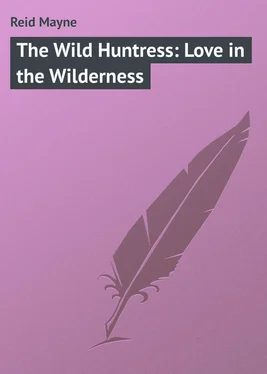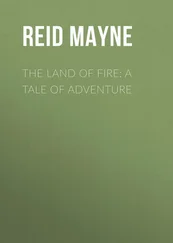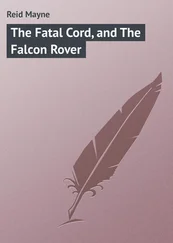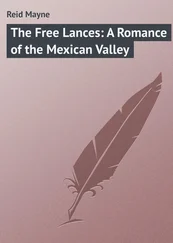Mayne Reid - The Wild Huntress - Love in the Wilderness
Здесь есть возможность читать онлайн «Mayne Reid - The Wild Huntress - Love in the Wilderness» — ознакомительный отрывок электронной книги совершенно бесплатно, а после прочтения отрывка купить полную версию. В некоторых случаях можно слушать аудио, скачать через торрент в формате fb2 и присутствует краткое содержание. Жанр: foreign_prose, на английском языке. Описание произведения, (предисловие) а так же отзывы посетителей доступны на портале библиотеки ЛибКат.
- Название:The Wild Huntress: Love in the Wilderness
- Автор:
- Жанр:
- Год:неизвестен
- ISBN:нет данных
- Рейтинг книги:3 / 5. Голосов: 1
-
Избранное:Добавить в избранное
- Отзывы:
-
Ваша оценка:
- 60
- 1
- 2
- 3
- 4
- 5
The Wild Huntress: Love in the Wilderness: краткое содержание, описание и аннотация
Предлагаем к чтению аннотацию, описание, краткое содержание или предисловие (зависит от того, что написал сам автор книги «The Wild Huntress: Love in the Wilderness»). Если вы не нашли необходимую информацию о книге — напишите в комментариях, мы постараемся отыскать её.
The Wild Huntress: Love in the Wilderness — читать онлайн ознакомительный отрывок
Ниже представлен текст книги, разбитый по страницам. Система сохранения места последней прочитанной страницы, позволяет с удобством читать онлайн бесплатно книгу «The Wild Huntress: Love in the Wilderness», без необходимости каждый раз заново искать на чём Вы остановились. Поставьте закладку, и сможете в любой момент перейти на страницу, на которой закончили чтение.
Интервал:
Закладка:
Reid Mayne
The Wild Huntress: Love in the Wilderness
Chapter One
The Squatter’s Clearing
The white-headed eagle, soaring above the spray of a Tennessean forest, looks down upon the clearing of the squatter. To the eye of the bird it is alone visible; and though but a spot in the midst of that immense green sea, it is conspicuous by the colour of the trees that stand over it. They stand, but grow not: the girdling ring around their stems has deprived them of their sap; the ivory bill of the log-cock has stripped them of their bark; their leaves and twigs have long since disappeared; and only the trunks and greater branches remain, like blanched skeletons, with arms upstretched to heaven, as if mutely appealing for vengeance against their destroyer.
The squatter’s clearing, still thus encumbered, is a mere vistal opening in the woods, from which only the underwood has been removed. The more slender saplings have been cut down or rooted up; the tangle of parasitical plants have been torn from the trees; the cane-brake has been fired; and the brush, collected in heaps, has melted away upon the blazing pile. Only a few stumps of inferior thickness give evidence, that some little labour has been performed by the axe.
Even thus the clearing is a mere patch – scarcely two acres in extent – and the rude rail-fence, that zig-zags around it, attests that the owner is satisfied with the dimensions of his agricultural domain. There are no recent marks of the axe – not even the “girdling” of a tree – nothing to show that another rood is required. The squatter is essentially a hunter; and hates the sight of an extensive clearing – as he would the labour of making one. The virgin forest is his domain, and he is not the man to rob it of its primeval charms. The sound of the lumberer’s axe, cheerful to the lonely traveller, has no music for his ear: it is to him a note of evil augury – a knell of dread import. It is not often that he hears it: he dwells beyond the circle of its echoes. His nearest neighbour – a squatter like himself – lives at least a mile off; and the most proximate “settlement” is six times that distance from the spot he has chosen for his cabin. The smoke of his chimney mingles with that of no other: its tall column ascends to heaven solitary as the squatter himself.
The clearing is of an irregular semi-circular shape – a deep narrow stream forming the chord, and afterwards cleaving its way through the otherwise unbroken forest. In the convexity of the arc, at that point most remote from the water, stands the cabin – a log “shanty” with “clapboard” roof – on one side flanked by a rude horse-shed, on the other by a corn-crib of split rails.
Such a picture is almost peculiar to the backwoods of America. Some may deem it commonplace. For my part, I cannot regard it in this light. I have never looked upon this primitive homestead of the pioneer without receiving from it an impression of romantic pleasure. Something seems to impart to it an air of vague and mystic grandeur. Perhaps I associate the picture with the frame in which it is set – the magnificent forest that surrounds it, every aisle of which is redolent of romance. Such a scene is suggestive of hunter lore and legend – of perils by flood and field, always pleasant to be remembered – of desperate deeds of heroism performed by gallant backwoodsmen or their equally gallant antagonists – those red warriors who once strode proudly along the forest-path, but whose upright forms are no longer seen under the shadows of its trees.
Perhaps it is from reflections of this kind, that I view with interest the clearing and cabin of the squatter; or it may be from having at one period of my life encountered incidents, in connection with such a scene, of a character never to be forgotten.
In spring this picture is transformed – suddenly as by the shifting of a panoramic view; or, as upon the stage, the Harlequin and brilliant Columbine emerge from the sober disguisement of their dominoes. If in winter the scene might be termed rude or commonplace, it now no longer merits such titles. Nature has girded on her robe of green, and by the touch of her magical wand, has toned down its rough features to an almost delicate softness. The young maize – planted in a soil that has lain fallow, perhaps for a thousand years – is rapidly culming upward; and the rich sheen of the long lance-like leaves, as they bend gracefully over, hides from view the sombre hues of the earth. The forest trees appear with their foliage freshly expanded – some; as the tulip-tree, the dogwood, and the white magnolia, already in the act of inflorescence. The woods no longer maintain that monotonous silence which they have preserved throughout the winter. The red cardinal chatters among the cane; the blue jay screams in the pawpaw thicket, perhaps disturbed by the gliding of some slippery snake; while the mock-bird, regardless of such danger, from the top of the tall tulip-tree, pours forth his matchless melody in sweet ever-varying strain. The tiny bark of the squirrel, and the soft cooing of the Carolinian dove, may be heard among other sounds – the latter suggestive of earth’s noblest passion, as its utterer is the emblem of devotion itself. At night other sounds are heard, less agreeable to the ear: the shrill “chirrup” of cicadas and tree-toads ringing so incessantly, that only when they cease do you become conscious of their existence; the dull “gluck-gluck” of the great bullfrog; the sharp cries of the heron and qua-bird ; and the sepulchral screech of the great horned owl. Still less agreeable might appear the fierce miaulling of the red puma , and the howl of the gaunt wolf; but not so to the ears of the awakened hunter, who, through the chinks of his lone cabin, listens to such sounds with a savage joy.
These fierce notes are now rare and exceptional – even in the backwoods – though, unlike the war-whoop of the Indian, they have not altogether departed. Occasionally, their echo may be heard through the aisles of the forest, but only in its deepest recesses – only in those remote river “bottoms” where the squatter delights to dwell. Even there, they are heard only at night; and in the morning give place to softer and sweeter sounds.
Fancy, then, a fine morning in May – a sunshine that turns all it touches into gold – an atmosphere laden with the perfume of wild-flowers – the hum of honey-seeking bees – the song of birds commingling in sweetest melody – and you have the mise en scène of a squatter’s cabin on the banks of the Obion, half an hour after the rising of the sun. Can such a picture be called commonplace ? Rather say it is enchanting.
Forms suddenly appear upon the scene – forms living and lovely – in the presence of which the bright sunshine, the forest glories of green and gold, the bird-music among the trees, the flowery aroma in the air, are no longer needed to give grace to the clearing of the squatter. It signifies not that it is a morning in the middle of May: were it the dreariest day of December, the effect would be the same; and this resembles enchantment itself. The rude hut seems at once transformed into a palace – the dead trunks become Corinthian columns carved out of white marble – their stiff branches appear to bend gracefully over, like the leaves of the recurrent acanthus – and the enclosure of carelessly tended maize-plants assumes the aspect of some fair garden of the Hesperides!
The explanation is easy. Magic is not needed to account for the transformation: since there exists a far more powerful form of enchantment in the divine presence of female beauty. And it is present there, in its distinct varieties of dark and fair – typified in the persons of two young girls who issue forth from the cabin of the squatter: more than typified – completely symbolised – since in these two young girls there appears scarce one point of resemblance, save the possession of a perfect loveliness. The eye of the soaring eagle may not discover their charms – as did the bird of Jove those of the lovely Leda – but no human eye could gaze for a moment on either one, without receiving the impression that it was looking upon the fairest object on earth. This impression could only be modified, by turning to gaze upon the other.
Читать дальшеИнтервал:
Закладка:
Похожие книги на «The Wild Huntress: Love in the Wilderness»
Представляем Вашему вниманию похожие книги на «The Wild Huntress: Love in the Wilderness» списком для выбора. Мы отобрали схожую по названию и смыслу литературу в надежде предоставить читателям больше вариантов отыскать новые, интересные, ещё непрочитанные произведения.
Обсуждение, отзывы о книге «The Wild Huntress: Love in the Wilderness» и просто собственные мнения читателей. Оставьте ваши комментарии, напишите, что Вы думаете о произведении, его смысле или главных героях. Укажите что конкретно понравилось, а что нет, и почему Вы так считаете.












